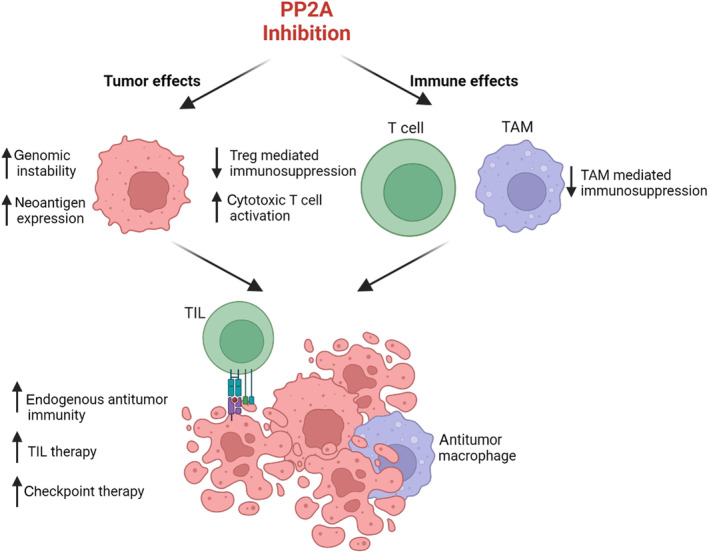Fig. 1.

PP2A inhibition may enhance the efficacy of immune‐based cancer therapies. PP2A inhibition affects both cancer cells and immune cells. In cancer cells, PP2A enhances neoantigen expression in part by promoting alternative RNA splicing and genomic instability. By increasing the number of targets that are recognizable by endogenous immune cells, PP2A inhibition may increase the number of tumor‐infiltrating lymphocytes (TIL). In immune cells, inhibiting PP2A enhances immune activation through many mechanisms, including decreasing the number and immunosuppressive activity of both regulatory T cells (Tregs) and tumor‐associated macrophages (TAMs). PP2A inhibition also increases the activation of cytotoxic T cells. Therefore, PP2A inhibition increases the endogenous antitumor immune response, which may be leveraged for combination strategies that require an endogenous pool of tumor‐reactive T cells, including TIL therapy and checkpoint therapy. Figure generated in BioRender.com.
